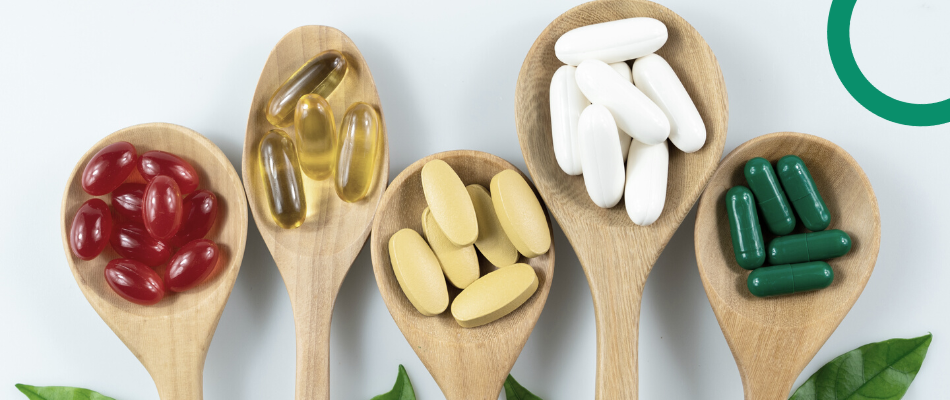It seems as though every week there is a new supplement promising to enhance our wellbeing by just popping one a day. This led to the reason for this article – do we need supplements and why the urgency?
Research suggests that supplements have been available for consumption since the 1940s and currently, there are over 90 000 products available generating about $30bn a year! Furthermore, the most common supplement bought contains fish oil, omega 3, DHA or EPA fatty acids, multivitamins, vitamin D, calcium and vitamin C.
But what does the science reveal – should we or shouldn’t we? And if we choose to do so, what should we be taking? But first – what are supplements (just so that we are on the same page)?
‘Supplements’ is the umbrella word used to describe products (whether in pill format or powdered format) containing vitamins, minerals, herbs and botanicals, amino acids and enzymes – or a combination of these. But how do you know if you need supplements? Let’s have a look at some questions you might have to ask before just buying the next miracle drug.
Talk to your doctor
Before choosing your supplement for the day, talk to your doctor if you:
- Might be pregnant: Folic acid and iron are recommended for women who are pregnant. Your doctor will be able to advise you accordingly and recommend what is needed.
- Have a restricted diet: If you cut certain food groups out of your daily diet – you might need to supplement the nutrients you would have gained from eating them.
- Have a certain health condition: Your doctor will recommend a supplement according to the condition you might have.
Possible deficiencies
Analysing your daily diet is necessary. This will help you see whether you might have some deficiencies. You can also take a blood test to confirm your suspicions. If you are suffering from any of the following, you should talk to your doctor about the following symptoms:
- Hair loss
- Joint pain
- Uncharacteristic tiredness
- Irregular heartbeat
- Difficulty with your vision
- Wounds that heal slowly
Studies have also shown, that in general, there is a list of nutrients that patients fall short of:
- Vitamin D
- Calcium
- Potassium
- Magnesium
- Iron
Safety and supplements
Everything in moderation – right? Make sure that you are familiar with the side effects of any supplement you are taking. Don’t go over the recommended daily doses. Check the bottle for a third-party ‘seal of approval. Some vitamins (such as vitamin K and St John’s wort) could interfere with the medicine you take. It is therefore important that you let your doctor know which supplements you are taking and ask your pharmacist which would influence the medication that you have been prescribed.
Caution should also be taken with certain supplements:
- Vitamin A and beta-carotene: the use of vitamin A when pregnant could affect the baby.
- Antioxidants and cancer treatment: research is showing that antioxidants could interfere with some cancer treatments.
- Vitamin B12: high doses of Vitamin B12 could have side effects like anxiety, dizziness or headaches.
- Vitamin D: too much can lead to a calcium build-up.
Using the guidelines above, it is also important to say that nothing is better than a healthy diet which ensures that you eat the nutrients you need daily. Supplements are supplementary to eating a well-rounded diet. Consult with the experts at all times, it is your health, your body and your wellbeing – you are responsible for the upkeep.
Stay healthy and make good choices – you and your health deserve it.







